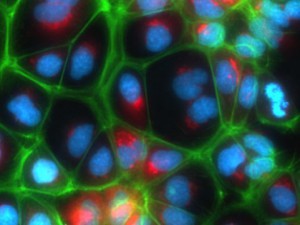Lab-grown Functional Human Liver Cells
The liver is the human body's largest internal organs. It is an incredible organ, as it can regenerate (with people able to lose as much as 75 percent and yet still grow it back), and it is also a major part of the completion of metabolism. The liver is constituted by 85% of human liver cells( or human hepatocytes) - which are often used by the pharmaceutical industry to study liver toxicity, drug clearance and interactions between drugs. They are still used for clinical cell therapy to correct genetic defects, reversal of cirrhosis, or support wearing liver aid equipment.
Although the liver in the human body has incredible regeneration abilities, this capability to proliferate is rapidly lost when liver cells are removed from the body. Researchers have been trying to try to expand and grow the human liver cells in the laboratory, but so far only generated some immortalized cancer cells with not much metabolic function. The lack of human liver cells supply and these inabilities of cells proliferation without losing functions has become a major bottleneck for scientific, clinical and pharmaceutical development.
Now, it seems that a team of researchers from The Hebrew University of Jerusalem, partnered with leading German scientists have been able to solve this problem. They developed a new method in the laboratory to rapidly expand the number of functional hepatocytes without losing their unique metabolic function. This new study was published in Nature Bioengineering.
 photo credit: Fluorescently labeled polarized Upcyte® hepatocytes. Professor Yaakov Nahmias
photo credit: Fluorescently labeled polarized Upcyte® hepatocytes. Professor Yaakov NahmiasBy taking two genes from the human papilloma virus, called E6 and E7, they were able to free the lab-grown liver cells from being in cell-cycle arrest when exposed to Oncostatin M (OSM)—a particular protein involved in liver regeneration – allowing the cells to grow and divide.
Normally, when researchers have tried to get hepatocytes to regenerate, they’ve inadvertently turned them into cancer cells, growing uncontrollably. But by only selecting those cells in which the growth is tightly controlled by OSM, this new research allows the scientists to precisely constrain the level at which the cells divide.
“This is the holy grail of liver research,” says Professor Yaakov Nahmias, director of the Alexander Grass Center for Bioengineering at the Hebrew University of Jerusalem, who led the research team, in a statement. “Our technology will enable thousands of laboratories to study fatty liver disease, viral hepatitis, drug toxicity and liver cancer at a fraction of the current cost.”
Journal Reference:
Gahl Levy, David Bomze, Stefan Heinz, Sarada Devi Ramachandran, Astrid Noerenberg, Merav Cohen, Oren Shibolet, Ella Sklan, Joris Braspenning, Yaakov Nahmias. Long-term culture and expansion of primary human hepatocytes. Nature Biotechnology, 2015; DOI: 10.1038/nbt.3377

Your email address will not be published. Required fields are marked *